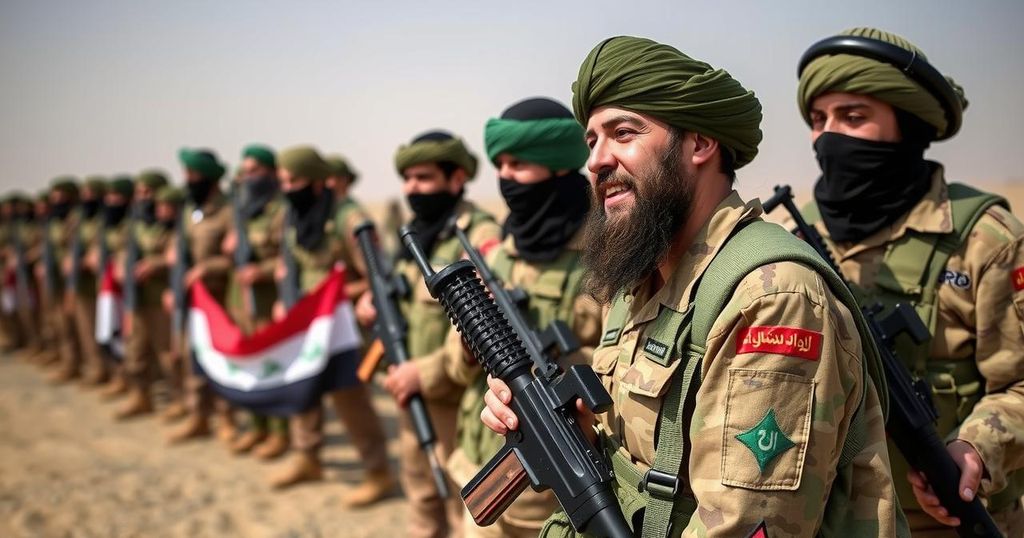Iraqi PMU Reaffirms Allegiance to Iran Amid Shifting Regional Dynamics

The Iraqi Popular Mobilization Units reaffirm their loyalty to Iran, emphasizing their allegiance amidst regional shifts in focus from Israel to Syria. Headed by Faleh Al-Fayyad, the PMU commemorates their role in defeating ISIS while also honoring key figures like Qassem Soleimani. This comes as Iraqi leaders, including Sunnis and Kurds, position themselves in light of changes in Syrian leadership and political dynamics.
The Iraqi Popular Mobilization Units (PMU), recognized as Hashd al-Shaabi, have reiterated their allegiance to Iran amidst shifting regional dynamics. Faleh Al-Fayyad, the head of the PMU, affirmed their loyalty during a gathering in Diyala province, commemorating the defeat of ISIS in December 2014. He emphasized their commitment to the Iranian leadership, particularly honoring the late General Qassem Soleimani, who significantly contributed to the fight against ISIS before his assassination in January 2020.
Al-Fayyad also acknowledged Abu Madhi al-Muhandis, another key figure who fell in the same airstrike that killed Soleimani. These declarations are particularly notable as Iranian-aligned militias reduce their focus on Israel and are increasingly concerned with the developments in Syria, especially under new leadership. Hadi al-Amiri, head of the Badr Organization and an integral part of the PMU, articulated a firm stance on Syria, stating, “we’re not afraid of the new Syria,” yet expressed concerns regarding its potential influence on Iraqi affairs.
The shifting power structures have sparked varying responses within Iraq. Sunni leaders are optimistic that changes in Syria could benefit their political standing, while Kurdish political factions closely monitor the evolving dynamics. Allies of the Kurdish Democratic Party (KDP) are hopeful that this transition in Syria will pave the way for greater collaboration among Kurdish entities, thereby influencing the future political landscape in both Iraq and Syria.
The Popular Mobilization Units (PMU) are an amalgamation of various Iraqi militias formed in response to the ISIS threat. Their strong ties to Iran reflect both ideological and strategic alliances, particularly following the significant military support Iran provided during the fight against ISIS. The assassination of Qassem Soleimani, a key Iranian general in charge of operations in Iraq, marked a pivotal moment in US-Iran relations and had profound effects on the regional balance of power. As the Syrian civil conflict continues to shape the geopolitical arena, Iraqi militias are reassessing their positions, particularly concerning Israel and their ongoing allegiance to Tehran. The recent emergence of a new Syrian leader is another factor prompting Iraqi factions, including Sunni leaders and Kurds, to evaluate their positions and alliances, aiming to solidify their influence amid potential changes in regional power dynamics.
In summary, the continued allegiance of the PMU to Iran highlights the sustained influence of Iranian-backed groups within Iraq, particularly in the aftermath of significant events such as the assassination of Qassem Soleimani. As Iranian militia focus shifts away from Israel towards developments in Syria, the political landscape in Iraq is also evolving, with various factions reassessing their strategies in hopes to leverage regional changes for their advantage. The interactions among Iraqi groups, alongside external pressures from Syria, will undoubtedly shape Iraq’s political future.
Original Source: www.jpost.com








